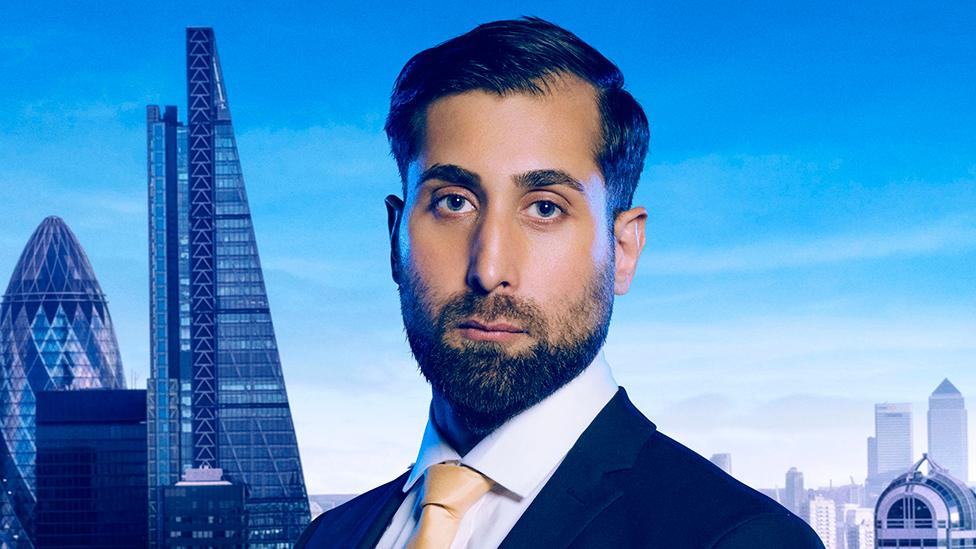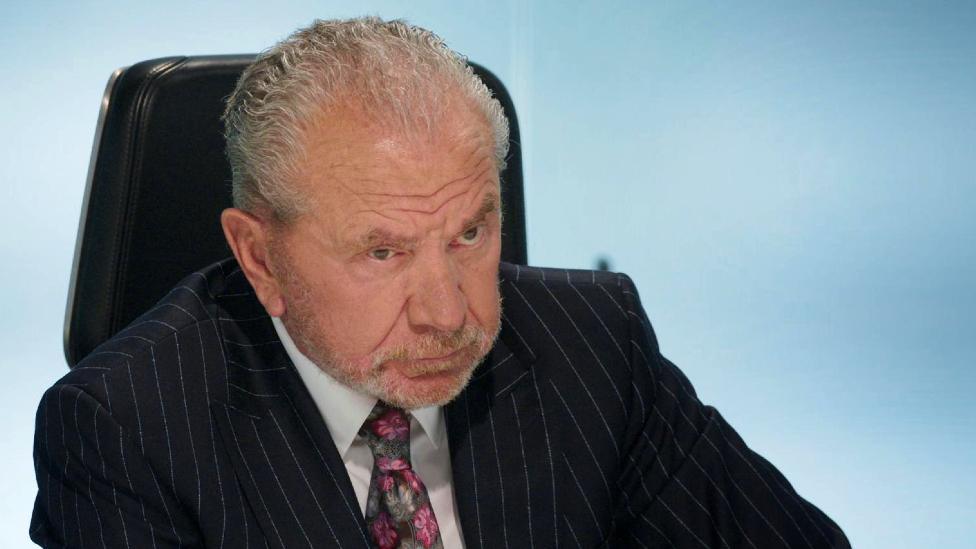BBC cuts Apprentice contestant from spin-off show after antisemitism complaints
- Published

Asif Munaf is one of 18 candidates taking part in the 18th series of The Apprentice
The BBC has dropped a contestant from The Apprentice spin-off show after he was accused of posting antisemitic comments on social media.
Asif Munaf has previously apologised "for any offence caused by" his posts about Israel, but denied antisemitism.
But the Board of Deputies of British Jews complained to the BBC on Wednesday about his "despicable antisemitism".
Munaf will still be seen on the main programme but won't appear on the relevant episode of You're Fired.
The spin-off show normally features an exit interview with the candidate who has been fired from the business contest that week.
A BBC statement said: "We can confirm that the individual concerned will not feature as a guest on any additional upcoming BBC content relating to The Apprentice."
In late January, shortly before the latest series of the TV contest started, Munaf said in a statement: "I apologise for any offence caused by my online content/social media.
"It was not my intention to offend anyone, and I am of course open to all views. The beliefs I hold and have shared are based on the values that I was brought up with."
In a separate statement on X, he said he had used "ill-judged & emotional language".
At that time, a spokesperson for The Apprentice said: "After filming had taken place, we were made aware of concerns over social media posts that Asif had made after he had left the process."
Producers "took immediate action and spoke to Asif in detail" and gave him "specialised training to understand why his posts may cause offence", they said.
On Thursday, Marie van der Zyl, president of the Board of Deputies of British Jews, told BBC Radio 4's Today programme Munaf had made "vile antisemitic comments" and she was not satisfied with the corporation's response.
"The BBC only took action yesterday when there was a huge complaint. I wrote myself to [director general] Tim Davie and to the chairman, and all they've done actually is to edit him out of a BBC You're Fired.
"Apparently, when it became known about his antisemitic tweets after the show, which was filmed last year, he was sent on some sort of diversity and training course.
"You have to ask why the producers didn't make further enquiries. But if the BBC isn't going to get its own house in order and look at some of these people on our screens, then you have to wonder what's going on."
She added that if the issue had been "in relation to any other group, I think the BBC would have acted much quicker, and they've only acted because they've had to act".
The Board of Deputies called for the BBC to "apologise publicly to the Jewish community for their handling of this sorry situation and send the people responsible for antisemitism awareness training".
Last month, Munaf described allegations of antisemitism against him as "slanderous".
On Thursday, he posted a series of messages on X in response to the BBC's decision, saying he would "always keep speaking the truth, especially in the midst of genocide", a term Israel has vehemently rejected.
He also referred to the "Zionist lobby", which he said had "pressured the broadcaster and they relented".
In recent months, the doctor from Sheffield has posted extensively about Israel's military campaign in Gaza, which followed a large-scale attack on Israel by Palestinian Islamist group Hamas, a proscribed terrorist organisation in the UK and other countries.
He has also described Zionism as "fascism on steroids", "a commercial enterprise based on apartheid" and "a cancer".
Zionism refers to the movement to create a Jewish state in the Middle East, roughly corresponding to the historical land of Israel, and thus support for the modern state of Israel.
In one post on Thursday, he said that "Anti-Zionism is not racism or antisemitism".
Munaf, Lord Sugar and production company Fremantle have been approached for comment by BBC News.
Related topics
- Published1 February 2024
